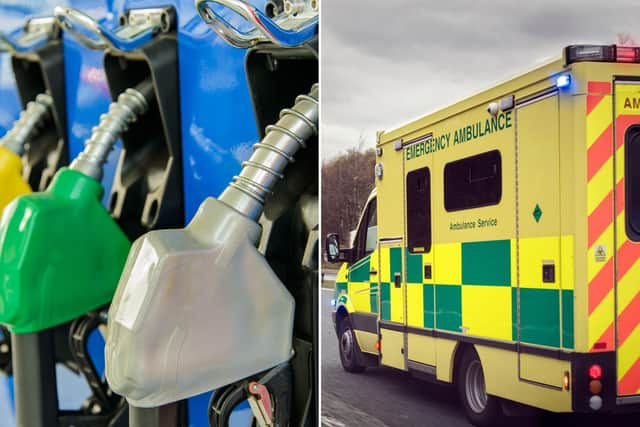Where do ambulances get their fuel from? The impact of the HGV driver shortage on the health sector
The HGV driver shortage has been affecting businesses and the general public up and down the country, with lower supplies of various items and materials in certain areas.
One key industry impacted is the fuel sector, as petrol stations are not receiving the HGV deliveries they need to keep up with demand.
Advertisement
Hide AdAdvertisement
Hide AdNot only does this impact the regular motorist, it’s also having a knock-on effect on emergency vehicles.
Here’s where ambulances get their fuel from and why panic buying is impacting emergency vehicles on the road.
Where do ambulances get their fuel from?
Just like other motorists, ambulances and other emergency vehicles get their fuel from regular petrol stations.
The drivers are given fuel cards to pay with, but the process of filling up is just like everybody else.


Instead of paying with a regular debit card, the fuel card allows emergency services to pay for the fuel directly, much like some car rental services.
Recently, this has meant that emergency vehicles are facing the same queues and fuel issues at petrol stations as the rest of the population.
What is causing the fuel shortage?
Petrol stations across the UK have seen long queues and the introduction of fuel caps, not because of a true fuel shortage, but because of an HGV driver shortage.
The HGV sector is facing several different issues at the moment, with Brexit meaning the loss of EU HGV drivers and the pandemic delaying the next generation of drivers.
Advertisement
Hide AdAdvertisement
Hide AdThere are also widespread issues relating to pay and working conditions across the industry.
As a result, there are not enough HGV drivers to get the fuel where it needs to go and some petrol stations have been forced to close due to these supply issues.
The Government’s official advice is to buy petrol as normal and not to panic buy, as this is exacerbating the existing problems.
There are plans to invite European Union HGV drivers to the UK on a temporary work visa to help alleviate the strain.
However, EU drivers are reportedly unwilling to take the government up on this offer at the moment.
How is the fuel shortage affecting NHS emergency services?
For vehicles like ambulances and other emergency services, the issues at pump stations are making it difficult to find the fuel to get where they need to go.
An EMS apprentice wrote on Twitter that they were “on shift [in] an emergency ambulance, low on fuel and struggling to find somewhere that isn’t sold out”.
Chair of the British Medical Association, Dr Chaand Nagpaul, has also warned that “there is a real risk that NHS staff won’t be able to do their jobs”.
Advertisement
Hide AdAdvertisement
Hide AdBoris Johnson has put the army on standby to help refuel petrol stations that are particularly affected by the panic buying.
The Government has emphasised that drivers trying to top up when not necessary is making the situation worse.
It’s thought that the fuel delays will ease within a few days, as there is no real shortage to be concerned about.
Comments
Want to join the conversation? Please or to comment on this article.